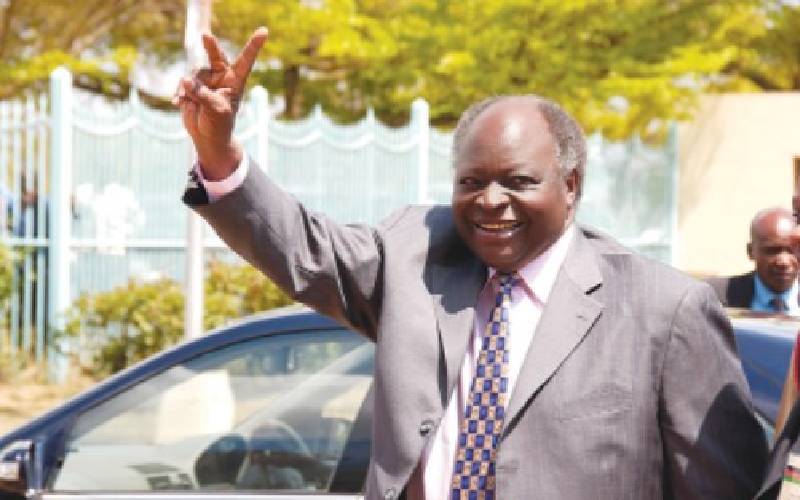
Unknown to many, before the political bug bit him in early 1960s, youthful Mwai Kibaki had made up his mind to live, marry and settle in Uganda, the country he had fallen in love with. His friend from boyhood days, one Muriuki Mugwandia, was to tell me years later.
They first met as school boys in Nyeri and together proceeded to Mang'u High. They briefly parted ways but would re-unite when Kibaki completed studies in London and sought a teaching job at his alma mater, Makerere University. By now Mugwandia had got employed as a salesman by Shell Oil company and posted to Kampala. He was only too happy to welcome his friend in Uganda. Kibaki did not want to stay idle as he waited for the Makerere job to come through, and joined his friend for a temporary job with Shell. They shared a rented house in Kampala, and continued to live together even after Kibaki finally got the Makerere job.